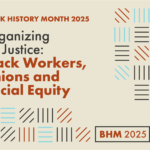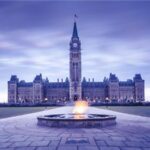On Human Rights Day, we recognize that human rights are integral to security
More than 13 years after the September 11, 2001 attacks on the United States, we continue to see governments interpret “national security” in a way that erodes basic human rights and civil liberties. Rather than recognizing that human rights and civil liberties are integral to security of any kind, we see governments implementing legislation and policies in ways that are alienating and targeting racialized communities and people of different religious faiths. We see our borders being closed to those most in need, such as refugees fleeing persecution and terror. All in the name of national security.
Ten years ago, in the wake of 9/11, our government was forced to call a Commission of Inquiry into the role played by Canadian officials in the overseas detention and torture of Canadian citizen, Maher Arar. Through that process, led by Justice Dennis O’Connor, we learned that Canadian security and law enforcement agencies had mislabeled him a terrorist, and that their actions contributed to his overseas detention and torture. It soon became apparent that his was not an isolated case — and a second Commission of Inquiry was established, this time led by retired Supreme Court Justice, Frank Iacobucci. Once again, it was determined that Canadian agencies had made unsubstantiated allegations of terrorist links against three other Canadian men — Ahmad El Maati, Abdullah Almalki, and Muayyed Nureddin. And once again, it was determined that Canadian officials had played a role in their overseas detention and torture. This year, we are marking the United Nations Human Rights Day on December 10, by remembering these cases, and all the other serious miscarriages of justice that have been the consequence of this misinterpretation of “security” in the post 9/11 world.
We want to highlight, once again, the very important work done by Justice O’Connor and Justice Iacobucci at both inquiries, and the very crucial recommendations made by the Arar Inquiry. Most importantly, we recall Justice O’Connor’s comprehensive recommendations around the need for integrated civilian oversight of all the agencies that lead and participate in national security work. Those recommendations have not been implemented. Instead, we see more and more powers being given to national security agencies, and less and less oversight of their activities. This must not continue.
We also highlight the need for redress for all victims of post 9/11 abuses of power by Canadian security and law enforcement agencies. Just as Maher Arar received an apology and compensation, so too should Almalki, El Maati, and Nureddin. Benamar Benatta is another example of someone whose life has been destroyed by overreaching security agencies, and he and all others who have experienced this kind of injustice must be given redress.
The United Nations General Assembly proclaimed December 10 as Human Rights Day in 1950. The goal was to raise awareness about the Universal Declaration of Human Rights as the common standard of achievement for all peoples and all nations. It is an assertion of collective and individual rights, recognizing everyone’s right to be treated fairly, equally, and with dignity. It symbolizes hope, freedom from oppression, persecution, and domination, and the promise of security for all. And it serves as the inspiration of our work every day.





